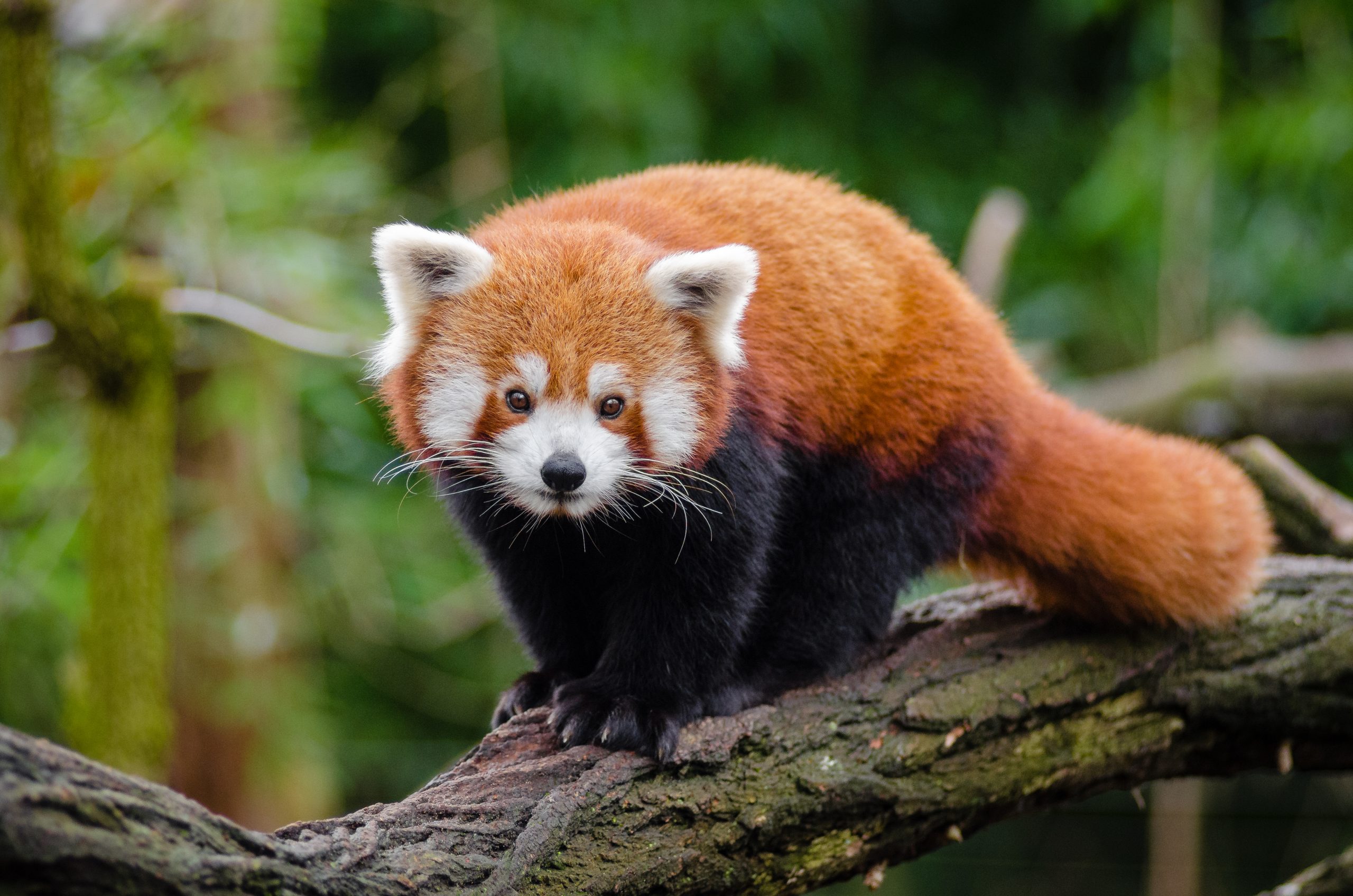
Red Panda
Recent genetic analysis has shown that the red panda is not in fact a small bear, but instead has a closer relationship to raccoons, mustelids (badgers otters and the like) and skunks. However, what is even more fascinating, is that the next closest related family is in fact the pinipeds (seals sealions and similar) and only after this, do we find the giant panda amongst the other bears.
What is fascinating, though, is that this is the original panda. The red panda was discovered and named in 1825, while the giant panda was only discovered in 1869. I cannot find any articles on it, but I suspect that the red panda was also long-known about in China before its discovery as well.
It is not closely related to the giant panda, which is a bear, though they do share a number of features such as elongated wrist bones or “false thumbs” used for grasping bamboo (so-called convergent evolution; where distantly related species evolve the same features, because it allows each to survive well in the wild – eating what they eat (or similar). The evolutionary lineage of the red panda (Ailuridae) goes back as far as 18-25 million years ago, and there are a variety of fossils in this lineage, found in Europe and North America.
So what has happened in recent times? They were known to be found in two different places, one of them lives in the Himalayas and the other in China. What has been discovered in recent times, is that these are not only subspecies, but separate species – and are thought to have split 250,000 years ago. However, while this is clearly true, it may well need to be forgotten – there are only 10,000 red pandas left in the wild as the top possible estimate, some suggest that there are actually only 2500 – we may have no choice in conserving both species, but have to interbreed them to help just one mixed group of red pandas, rather than loosing all red pandas from the wild. They live in coniferous forests as well as temperate broadleaf and mixed forests, favouring steep slopes with dense bamboo cover close to water sources. Most of its nutrients come from bamboo stems and leaves,
Support for these wild populations is essential. The best way to help justify their long term survival, is for local people to see them as a financial gift. This can happen quickly, with not that many people going there.
Below is a video for each, below that is a list of any articles which mention this fascinating creature, and below that, we will add any links that will help you see these animals in the wild.










